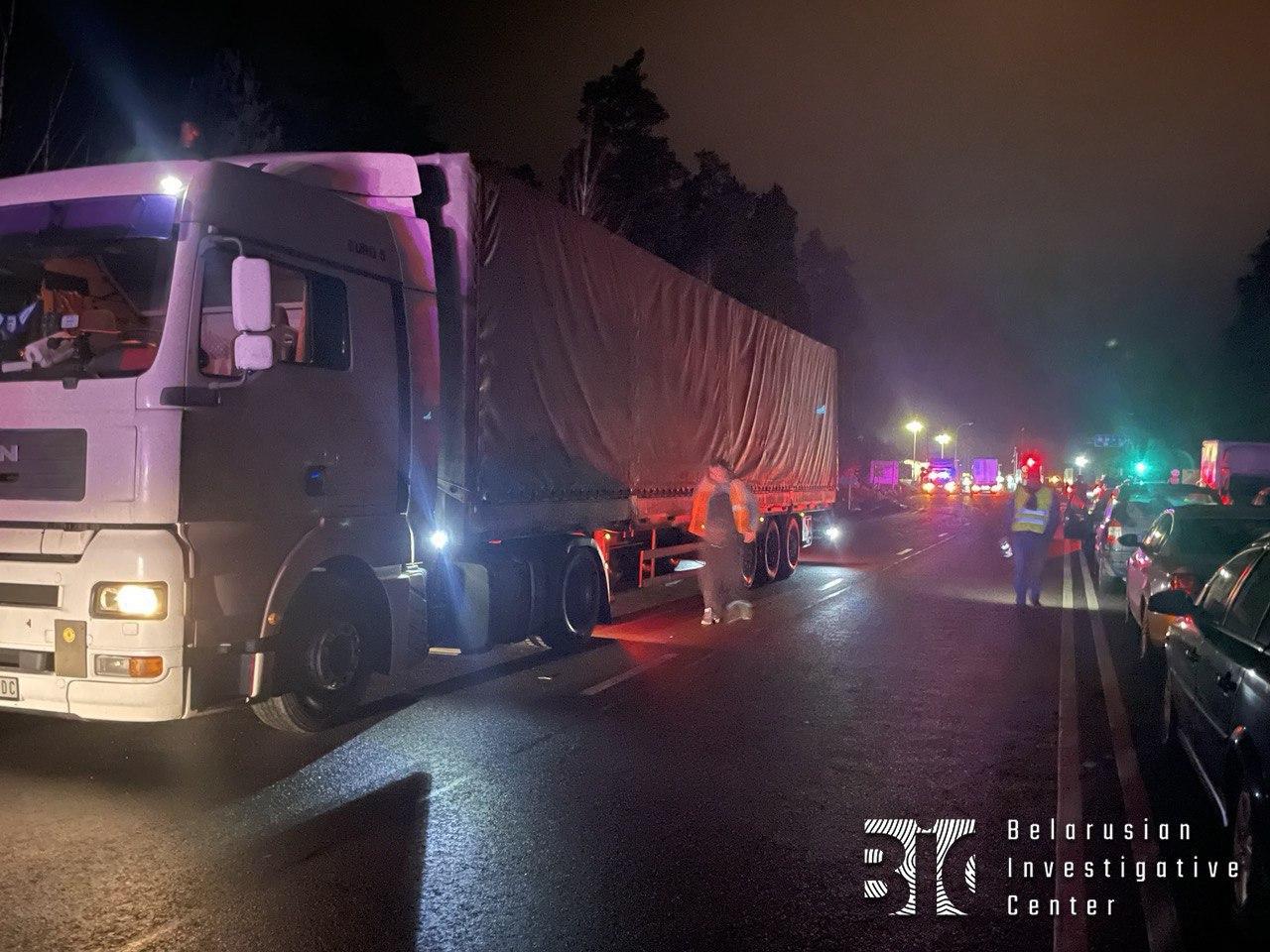In connection with the pre-trial investigation, these companies located in three cities of Lithuania were searched. Two people were also detained, they are suspected of involvement in the crimes under investigation.
In addition, it is reported that customs detained 3,000 tons of urea on the railway, worth more than 2 million euros.
Mantas Kaushilas said that this cargo was photographed in the port of Klaipeda by the Belarusian Investigation Center during our journalistic investigation.
According to him, arrested the owner and manager of the Rogers company, which was also mentioned in the journalistic investigation, Siena reported.
In order to bypass the international sanctions a shell company registered in Belarus and not subject to sanctions could be used, this version is being checked by the Lithuanian Customs Criminal Service.
The information of the Criminal Service of the Lithuanian customs is consistent with the data of our investigation.
During the investigation, our journalists identified a shell company Technospectrading, registered in Belarus, which supplied fertilizers to Europe busting the sanctions imposed on the manufacturer of those fertilizers, the Grodno Azot company.
On the night of February 13-14, at the Raigardas checkpoint, Lithuania (called Privalka from the Belarusian side), two trucks were detained, which at that time had already passed the customs control of Lithuania.
Stanislau Ivashkevich, the head of the Belarusian Investigative Centre, succeeded in talking to the truck driver, who confirmed that the truck was loaded at Grodno Azot. The driver also stated that he didn't know that the cargo was under sanctions, and simply drove it to its destination. The driver of the second truck confirmed the origin of his cargo was the same.
As a result of a 3-hour confrontation between the activists and the drivers and the Lithuanian police, high-ranking officers of the Lithuanian customs arrived at the scene at midnight and two intercepted trucks were taken back for additional inspection.
The next day, Lithuanian customs announced in a press release that an internal check had begun for possible violations of international sanctions.
This action gained a lot of coverage in the media.
On February 21, the Lithuanian transport minister and the head of the Lithuanian Railways both gave an interview on the evidence of the sanction-busting scheme to our OCCRP colleague, a journalist from the Siena investigation center, with whom the Belarussian Investigative center cooperates.
Both announced their intention to take action.
In turn, Minister of Transport and Communications of Lithuania, Marius Skuodis, later wrote on his Facebook page:
“By the way, a week ago the law enforcement agencies had been asked by us about the sanction-busting schemes under investigation by Siena. [...] The question is why we received information about possible violations from journalists, and not from all of us. I'm leaving it open. [...] Well, moving away from politics, respect to Sarunas Cerniauskas and the whole team for the investigation…”
Recently Lithuanian Railways at their press conference showed the arrested railway wagons with fertilizers banned for import. The very wagons were previously filmed by our journalist Alexander Yaroshevich.
We also managed to find out that the company-supplier of this cargo was Technospectrading.
The very company was indicated as an intermediary firm to bypass sanctions and supply Grodno Azot products in the latest investigation of the Belarussian investigative center.
Head of the Lithuanian Customs Department believes we need more efficient tools and better regulation.
"We constantly observe the process of emerging new schemes and new ways of trying to bypass," the head of the Lithuanian Customs Department Darius Zvironas said.
In turn, the Ministry of Foreign Affairs of the Republic of Lithuania initiated legislative actions to strengthen sanctions control unilaterally. They propose to introduce penalties for violation of both international and national sanctions, also to make appropriate changes to the Administrative Offenses Code and the Criminal Code.
"Belarusian KGB officers have been tasked with creating revenue schemes for the regime, and they are doing it from morning to night… Every day, our institutions identify some schemes to bypass sanctions. [...]
These schemes involve both foreign companies and, unfortunately, Lithuanian companies. Of course, I don’t rule out that there will be more such schemes, since they are created every day," Minister of Transport and Communications Of Lithuania Marius Skuodis said.
A number of European media reposted BIC's publications calling on the EU to take action.
Dutch Foreign Minister Wopke Hoekstra called on the EU to establish a centralised EU sanctions watchdog to tackle mass circumvention of the sanctions.
“The EU must use the full strength of its collective economic strength and criminal justice systems against those who assist in sanction evasion”, he said.
On February 22, Sviatlana Tsikhanouskaya spoke at the plenary meeting of the European Economic and Social Committee (EESC) in Brussels. Speaking at the meeting, she suggested that the EU establish a working group to monitor compliance with the sanctions.
“Sanctions against the regime should not have loopholes”, Sviatlana Tsikhanouskaya said.
Recalling, Rabochy Rukh (Workers’ Movement) activists had blockeded Belarusian trucks loaded with sanctioned products from Grodno Azot she stated that the company “continues to export products to the EU despite the sanctions.”
She called on the ESEC to support the use of Article 33 of the Charter of the International Labor Organization (ILO) against official Minsk due to "repression against workers."




